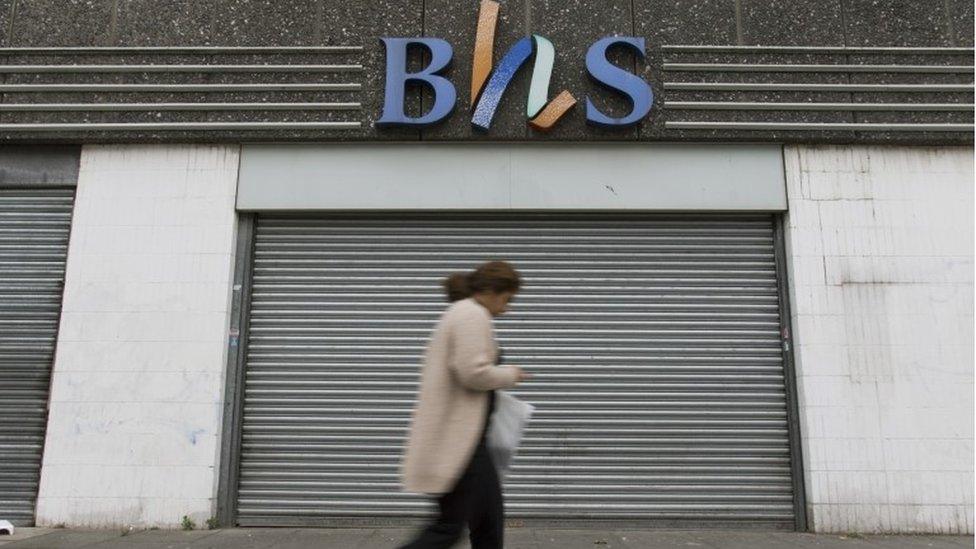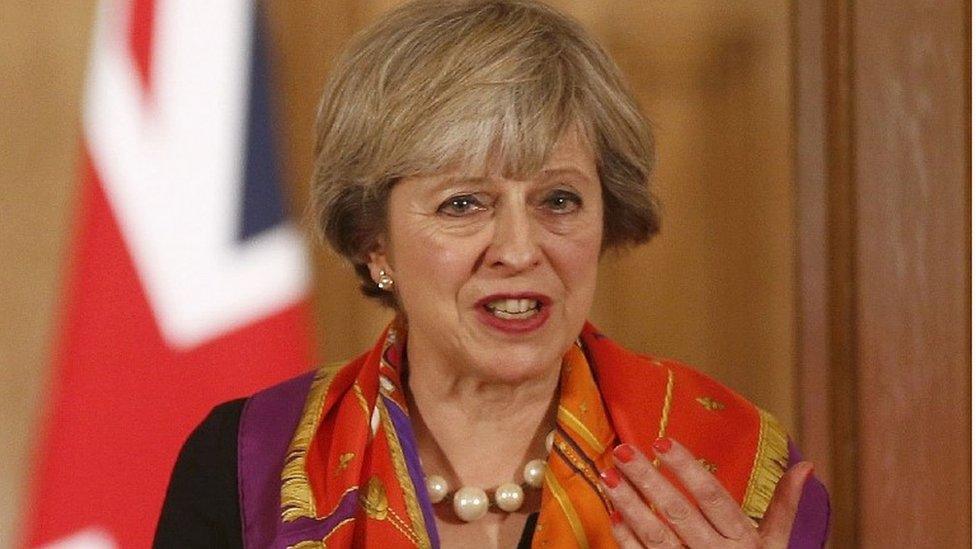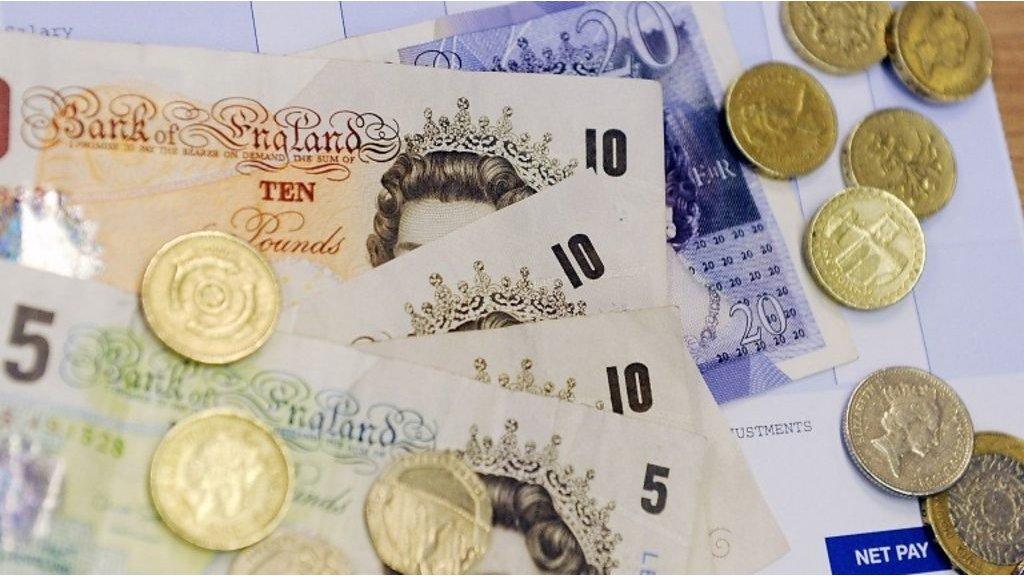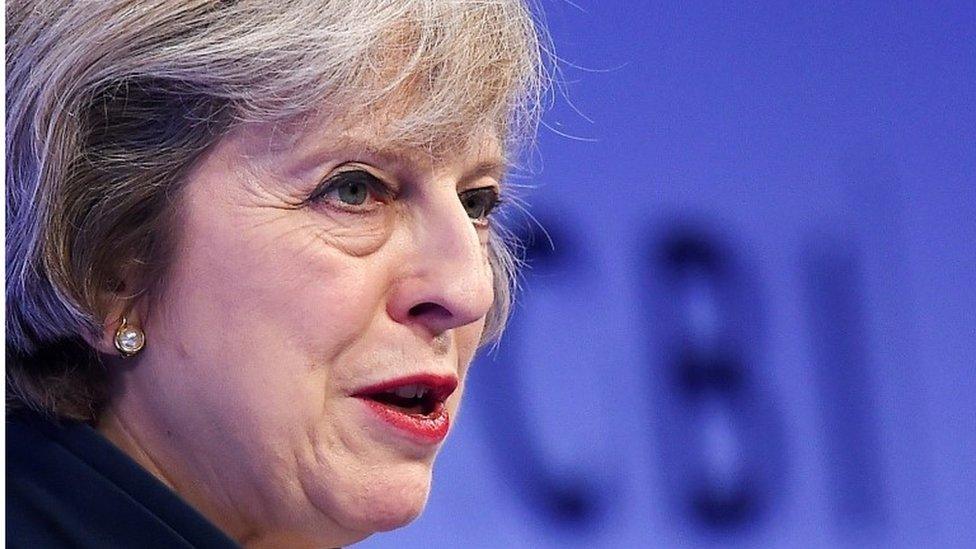Executive pay: Companies told to justify rates
- Published
- comments
The Business Secretary Greg Clark speaks to Radio 4's Today programme about executive pay
The government has outlined its plans to make companies justify high levels of executive pay.
Among the measures under consideration are pay ratios, which would show the gap in earnings between the chief executive and an average employee.
Shareholders would be handed more powers to vote against bosses' pay, but the government will not force companies to put workers on boards.
Prime Minister Theresa May has made tackling corporate excess a priority.
Her Conservative government is "unashamedly pro-business", but big firms must earn and keep the public's trust, she said in the consultation plans, external.
Chief executives of FTSE 100 firms now have a median pay package of £4.3m, which is 140 times that of the average worker, according to the High Pay Centre.
"There may be some circumstances where that is defensible, but it should be for the boards of companies and executives to justify that," Business Secretary Greg Clark told the BBC.
'Goldman-Waitrose issue'
He said the UK was not alone in targeting pay ratios, with the US set to report them at the start of next year.
However, businesses have warned it would be difficult to compare pay ratios across companies.
Former Business Secretary Vince Cable proposed them four years ago, but he dropped the idea because of what he called the "Goldman-Waitrose issue".
By comparing pay gaps, Goldman Sachs will look like a more equitable company than John Lewis thanks to the very high pay of the average banker, which is around £400,000, explained BBC business editor Simon Jack.
Simon Jack: The great pay crackdown?
Other suggestions from the government include more frequent binding votes by shareholders on chief executive's pay packages.
"The right thing is to give greater powers to shareholders to do their job in holding executives to account," Mr Clark said.

The proposals for private firms follow widespread anger over the collapse of BHS
The proposals form part of the government's Green Paper on corporate governance reform, external, which aims to increase public trust in business.
The paper also includes measures on:
Ensuring the "voice" of employees and customers is better represented on company boards
Holding privately-held firms to the same corporate governance standards as publicly listed companies
Prime Minister Theresa May said she wanted to stop an "irresponsible minority" of private firms acting badly and ensure "everybody plays by the same rules".
The move follows widespread anger over the collapse of BHS with the loss of 11,000 jobs and a big pension deficit.
Shadow business secretary Clive Lewis said the plans could become known as the "BHS law" because they responded so closely to the retailer's demise.
"But had the proposals outlined today by the secretary of state been in place six months ago, I'm not wholly convinced that we would have avoided the corporate governance scandals that have plagued the last summer," he told MPs.
The proposals announced by Mr Clark include a bespoke code of practice for the largest private companies who would have to comply or explain why they had not in their annual report.
Private firms will also be expected to report on diversity, greenhouse gas emissions and social and community issues.

Analysis: Simon Jack, BBC business editor
Every 30 years or so, the government has a crack at bringing businesses to heel - usually in the wake of a scandal.
In the 1980s it was Asil Nadir's Polly Peck and the late Robert Maxwell who prompted a series of corporate governance reforms.
Sports Direct and BHS are the poster children of this new crackdown and some of the measures contained in the Green Paper are designed with those miscreants in mind.
Will today's proposals succeed in changing the culture and practice of a corporate world perceived by the prime minister and others to be working for the few rather than the many?
The failure of BHS casts a long shadow over the corporate landscape and yet this Green Paper gives little emphasis on amplifying the voice of pension scheme members.
Ultimately, the success or failure of this crackdown will depend on how much is voluntary and how much is mandated. Today's Green Paper and the comments of the business secretary suggest that the government wants to encourage rather than impose a new approach.
That will be seen by most as a far cry from the fighting talk of Theresa May's early days.

Mr Clark also said he hoped the Green Paper would give a "stronger voice" to workers.
Non-executive directors or advisory panels could represent workers' interests in the boardroom, the consultation paper suggests.

Last week, Mrs May appeared to row back from plans to force companies to appoint employees to their boards, an idea that had caused unease among companies.
She ruled out forcing firms to appoint employees to company boards when she gave a talk to the CBI, saying there were "other routes" to providing worker representation on boards.
TUC general secretary Frances O'Grady said the prime minister should have the confidence to take on "big business elites" over the issue.
"Workers on boards is a policy that's tried, tested and proven in many other countries. And it will work for Britain too, helping us build a stronger and fairer economy," she said.
The Institute of Directors welcomed the proposed changes to private firms.
"The government is right to bring a new focus to the corporate governance of unlisted companies, which at the moment is a bit of black box - we don't know what's going on in there until something goes wrong," said head of corporate governance Oliver Parry.
- Published29 November 2016
- Published29 November 2016

- Published27 November 2016

- Published21 November 2016
